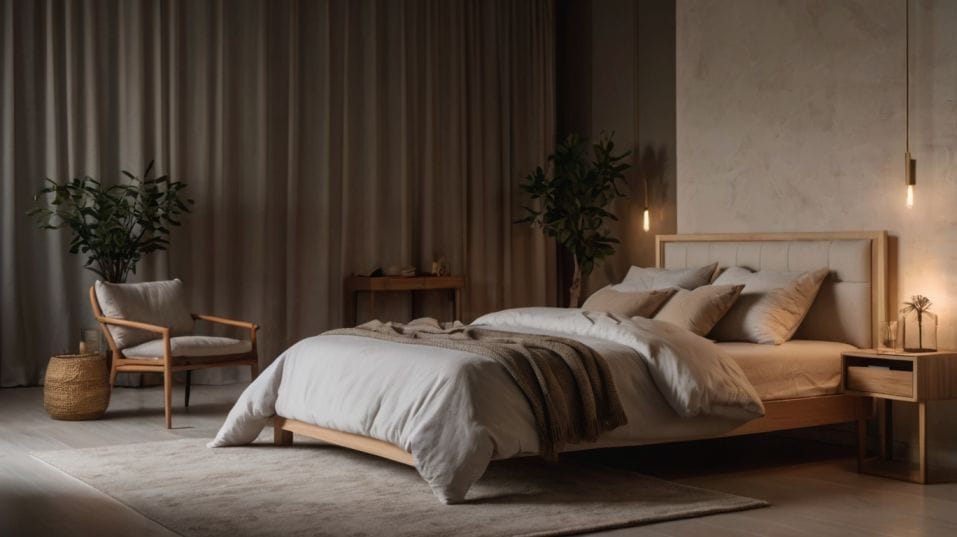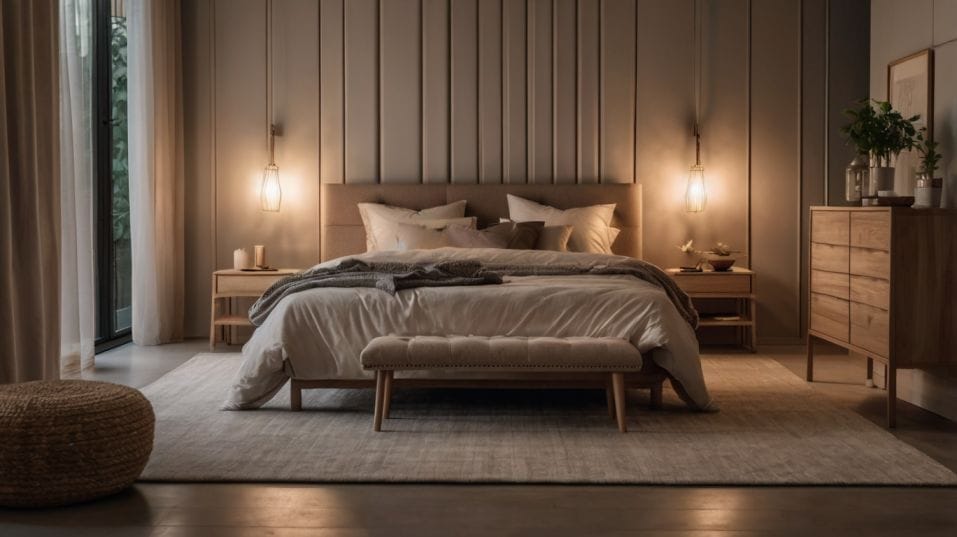How Clutter Affects Your Sleep Without You Noticing
Clutter silently wrecks your sleep. Learn how to clear hidden stress from your bedroom so you fall asleep faster and wake up truly refreshed.

Ever wonder why you're still tired after eight hours in bed? It might be your bedroom—not your habits. Even mild clutter quietly triggers stress signals in your brain, stealing deep rest without you knowing.
Before you try supplements or sleep trackers, take a hard look at your space. That pile of clothes and cluttered nightstand?
They could be sabotaging your recovery. Let’s break down how mess impacts your sleep—and how to fix it with just a few simple tweaks.
Your Brain Doesn’t Clock Out When You Do
You may be in bed, but your brain isn’t fully asleep. It stays on alert, scanning your environment for signals. That pile of clothes in the corner?
The unfinished paperwork on your desk? The half-unpacked Amazon box by the door? These aren’t just objects—they’re cues. Your brain interprets them as tasks left undone, decisions unmade, problems unresolved.
Even during sleep, your brain is filtering and processing. A cluttered space means more to process. More decisions. More stress. More mental load.
You won’t feel it consciously—but it adds up in the form of fragmented sleep, longer time to fall asleep, and reduced deep sleep. You’re technically asleep, but you’re not getting the quality rest your body and brain need to reset.

Cortisol Creeps In—And Stays Too Long
You’ve probably heard of cortisol. It’s your built-in alarm system. It spikes in the morning to help you wake up and drops at night so you can wind down. But clutter messes with that natural rhythm.
Research out of UCLA found that women who described their homes as cluttered or unfinished had consistently higher cortisol levels throughout the day. That means more stress, more mental tension, and a harder time relaxing at night.
The Hidden Stress Response
Here’s what that looks like in real life: You walk into your bedroom, and instead of feeling calm, your brain fires up.
Even if you don’t realize it, the chaos in your space keeps you in “on” mode. You stay alert. You stay wired. And sleep doesn’t come easily when your brain’s still in go-mode.
Your Bedroom Should Only Say One Thing: Sleep
Think about what your brain learns when you walk into your bedroom. If it sees a desk stacked with work, cluttered shelves, and reminders of everything you didn’t finish today, it’s not going to shift into rest mode. It’s going to keep scanning.
Your brain is pattern-hungry. It builds associations fast. If your bedroom is full of distractions, your brain will start to link that space with stress and alertness instead of calm and rest.
But when your sleep space is clean, quiet, and stripped of visual clutter, you’re giving your brain a clear message: this is where I shut down.
Reinforcing the Right Cues
Want to fall asleep faster and sleep deeper? Make sure your bedroom says one thing and one thing only—sleep.
Clutter Steals Focus—Even When You’re Not Awake
Even when your eyes are closed, your mind reacts to the world around you. Studies show that excess visual stimuli—like clutter—compete for your brain’s limited processing power.
That means less mental bandwidth for sleep consolidation, memory repair, and deep physical recovery.
What the Science Shows
The science backs it up: Princeton researchers found that physical clutter in your environment competes for your attention and reduces performance.
While that study focused on focus and productivity, the logic applies to sleep too. If clutter weakens your mental clarity during the day, it’s not helping your recovery at night.
Your bedroom doesn’t need to be sterile or minimalist—but it does need to be clean enough to let your brain relax.
How to Clear the Static Without Becoming a Neat Freak
This isn’t about becoming a hyper-organized person or tossing half your stuff. It’s about creating a space that helps your brain relax.
Think of it like clearing mental static. You don’t need to remodel. You just need to make your bedroom easier to sleep in.
Quick Fixes with Real Impact
Start with surfaces. Your nightstand should be clear except for a lamp, a book, or whatever helps you wind down. Avoid stacking random items or dumping your phone, keys, and chargers there. It signals chaos.
Keep the floor clear. No dirty laundry, no half-open bags. If it doesn’t belong there, move it or hide it. Use baskets or bins with lids. Closed storage reduces visual noise, and that alone can calm your nervous system.
If you work or study in your bedroom, find ways to separate your sleep zone. Cover your desk with a cloth after hours.
Put your laptop out of sight. Use soft lighting in the evening to shift the mood. You’re retraining your brain to recognize when it’s time to power down.
And if your room is packed with stuff? You don’t need to clear it all at once. Spend five minutes a night putting things in place. Over time, you’ll feel the difference in how fast you fall asleep—and how rested you feel in the morning.
Final Thoughts
Sleep problems aren’t always caused by noise or light or tech. Sometimes, it’s the silent clutter in your space doing the damage. Your brain craves clean cues.
When your environment supports rest, your body responds fast—more deep sleep, better mood, sharper focus.
You don’t need a sleep coach or a new mattress. You just need to look around and clear what doesn’t belong. One drawer, one shelf, one surface at a time.
Start tonight. Tidy your nightstand. Toss out the trash. Move your work bag out of the room. Then turn out the lights and feel your brain finally take a breath. This is where better sleep begins.




